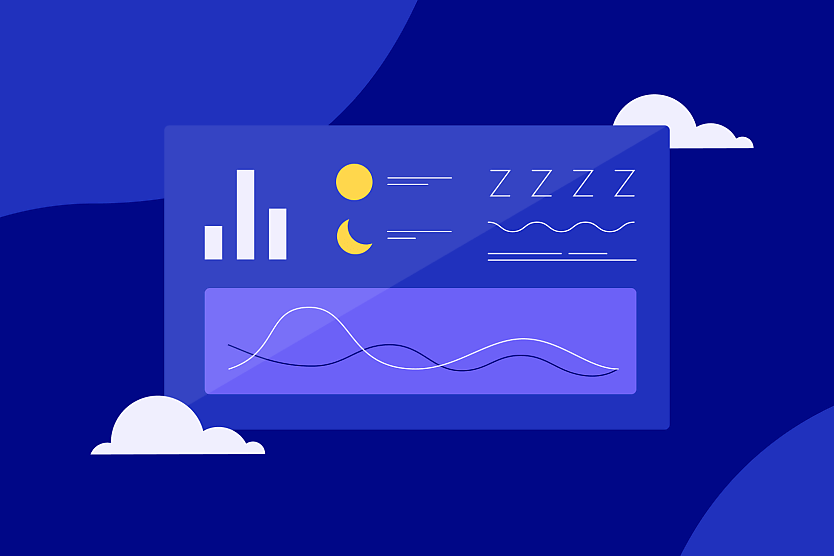
Science-backed tools can help employees improve sleep quality. Find out why this isn't just good news for employee wellbeing – it's also a boost for business performance.
We all know lack of sleep can make even the most patient person irritable – but the true impact of poor sleep is much greater than that.
Research from the Sleep Health Foundation found a third of Australian adults are experiencing inadequate sleep which they believe impacts their day-to-day. Three quarters who report sleeping less than five and a half hours a day say they have frequent daytime impairment or sleep-related symptoms.
Over a three-month period, 29 per cent of adults reported making errors at work due to sleepiness or sleep problems.
“Sleep problems and daytime consequences are endemic among Australian adults. A focus on healthy sleep at a policy level, as well as increased clinician and public awareness may be warranted,” the Foundation said.
So, what is the recommended amount of sleep?
Several studies, including those from the Mayo Clinic, cite the recommended amount of sleep for adults is seven or more hours a night. Any less than that on a regular basis has been linked with poor health, including weight gain, having a body mass index (BMI) of 30 or higher, diabetes, high blood pressure, heart disease, stroke, anxiety and depression.
Of course, the quality of sleep needs to be taken into account, as does any previous sleep deprivation.
“If your sleep is frequently interrupted, you're not getting quality sleep. The quality of your sleep is just as important as the quantity,” explained Eric J. Olson, M.D. at the Mayo Clinic.
“… Older adults tend to sleep more lightly, take longer to start sleeping and sleep for shorter time spans than do younger adults. Older adults also tend to wake up multiple times during the night.
“If you're sleep deprived,” he added, “the amount of sleep you need increases.”
Tools available
There is no shortage of sleep apps on the market – from those that offer guided meditation and breathing exercises to ones that host a wide selection of music such as white noise, audio books, autonomous sensory meridian response (ASMR) and nature sounds.
But despite there being a plethora of choices available to consumers, recent reviews have found the majority of apps have poor quality content, privacy issues and a lack of evidence base.
In fact, a study revealed out of over 500 apps on the Apple App Store and Google Play Store, less than one per cent had any evidence of the app improving sleep.
The good news
Organisations such as Unmind are leading the charge in creating effective and accessible options for people struggling with sleep, creating huge benefits for employees and businesses alike.
Backed by clinicians and mental health experts, we launched a pilot randomised controlled trial (RCT) seeking feedback from 300 working adults.
The 300 volunteers were divided into three groups; the first two utilised Unmind’s sleep tools and the third did not.
1. Group 1 was asked to use Unmind’s audio-based tool ‘Sleep Tales’
Sleep Tales are narrated stories with background music and sounds, titles include ‘Tropical relief’, ‘The artist’s studio’ and ‘Stargazing from a pier’.
2. Group 2 was asked to use Unmind’s audio-based tool ‘Nightwaves’
Nightwaves are ambient music and nature sounds, with titles such as ‘Forest ambience’, ‘Winter lake’ and ‘Relax by the campfire’.
3. Group 3 weren’t given access to either of Unmind’s sleep tools
They were asked to report their health and continue their usual routine.
The results were promising.
After four weeks, Group 1 and Group 2 reported significant wellbeing improvements compared to Group 3, with the former gaining an extra 3.5 hours of sleep a week, on average.
Other highlights:
- Reduced levels of depression and anxiety in Groups 1 and 2.
- Lost productivity due to poor sleep decreased from 43.7 per cent to 27.2 per cent.
- Satisfaction rates increased with 84.3 per cent rating the tools as either “good” or “excellent”.
A strong business case
Businesses that care about how much rest their staff get not only increase employee wellbeing, but it can also make a big impact across bottom lines.
Based on average earnings, reductions in presenteeism translates to a weekly saving of $258.58 per employee. Over the year, that’s $13,446.44.
Therefore, providing employees with a tool to support sleep is likely to improve health outcomes and significantly reduce financial loss for organisations.
To find out more about Unmind’s sleep study and the tools you can implement in your organisation, schedule a call with an Unminder today.










